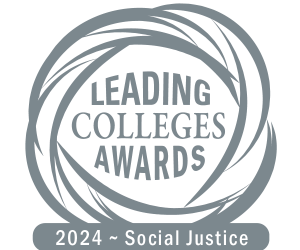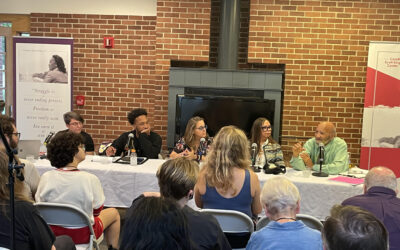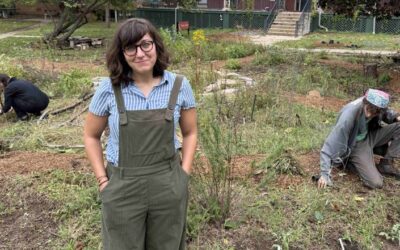For upcoming spring semester, Associate Professor of Philosophy Lara Matias is working hard to get a new course (P4C) into one or more of the Antioch schools. P4C stands for ‘Philosophy for Children,’ and is an innovative international pedagogical movement meant to foster inquiry and critical thinking skills in a shared community. Lara states that,
“when we do philosophy with children (P4C), we don’t teach philosophy. Instead, we facilitate group discussion among students. P4C is most often at the elementary level, but can be done with any grade or group and the methods of P4C and their practice are useful far beyond the classroom.
With the Philosophers Toolkit for understanding one another in hand, and the rules and practices of doing P4C in shared community, together we discuss issues concerning the students and explore ideas that they are interested in. Through the practices of inquiry and critical thinking skills, students consider their own thinking and that of others on interesting and important questions.
These may be questions that we often don’t take time to explore. “Why does someone become homeless and why do we treat them badly?” a fearless group of students in Hawaii asked after one of them had thrown stones at a man living on a beach the day before. Children have innumerable ideas and questions; things they think and wonder about and want to talk about, and practicing P4C in the classroom gives us the opportunity.
The idea of P4C, and the P4C program was created by Matthew Lipman at Montclair State University but the ideals of P4C, and the importance of developing the thinking skills and practice of community inquiry can be traced to John Dewey and the requirements for genuinely democratic societies. And P4C has been called ‘philosophy for everyone,’ and its use and benefits extend far beyond the classroom. The methods of P4C enable us to engage and discuss critical issues together in a critical and productive way without being critical of others or being criticized by others. These methods of engagement and inquiry and this model of pedagogy are essential to productive dialogue and understanding.”
The course Phil 310 ‘Doing Philosophy with Children’ has no prerequisite. It will be taught on Friday afternoons and is open to students and community auditors. We hope to have some of the local schools / grades participate with our students in learning critical thinking and compassionate and reasoned discourse. The course has been very successful before with Antioch students and faculty children joining up in practice of P4C at the end of the course.



